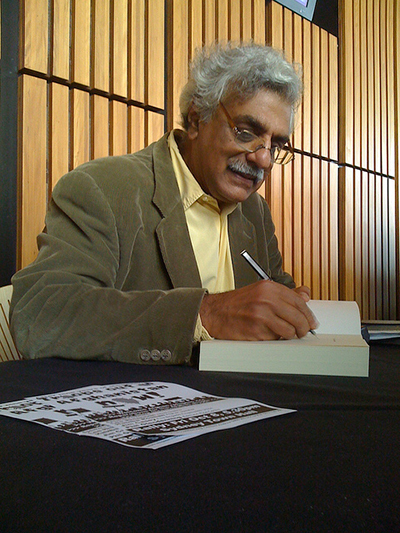The following is a Truthout interview with Tariq Ali about his new book, The Extreme Centre: A Warning:
Mark Karlin: What is the significance of Ronald Reagan and Margaret Thatcher as the icons of the proponents of wealth being diverted to the most unscrupulous exploiters of the marketplace?
Tariq Ali: They were the figureheads for pushing through a new model of capitalist exploitation that we know as neoliberalism. They turned out to be useful instruments. The US under Reagan was in reality run by a ruthless Politburo that created the new consensus. Some of its members resurfaced during the reign of Bush II.
Why is the assertion of jingoistic US and British politicians that democracy and so-called “free markets” are inextricably intertwined a lie?
It was a cold war trope when capitalism itself was barely mentioned. Today as we experience [many of the proponents of so-called] “free markets” regard democracy as an encumbrance, many an oil tycoon in Texas would prefer the Chinese model.
Does this propaganda fiction of the notion of open markets (which are really generally monopolized by the oligarchy) create a “manufactured consent” that confines the center of democracies into a submissive, consenting voting block?
Yes.
How did the US Democratic Party and the UK Labour Party shift to becoming supporters of neoliberal global corporate dominance, particularly through trade agreements, rather than championing the majority of workers in their countries?
The US Democrats have always been the party of capital. Always. That workers preferred them to the Republicans during the New Deal period is not surprising, but by and large, many working people have tended not to vote. The unions managed to squeeze out a few more concessions from the Democrats but today both parties woo capital, and Obama raised more money from Wall Street than his electoral rival. Nixon’s health plans were more radical than Obamacare, tilted to helping Big Pharma and the insurance giants.
Labour was a working-class party. No longer. Blair’s model was Clinton’s New Democrats.
Does Tony Blair’s term as prime minister epitomize how the UK now functions as the client state and junior partner of the United States’ economic and military global hegemony?
Yes, but it happened long before Blair and Clinton. From 1945-1956 Britain was a semi-vassal state. It was a period of handover from one empire to another. From 1956 onward Britain became an effective vassal and Thatcher/Blair cemented the process. Blair is by far the most shameless in this and other regards.
Why is the Venezuelan Bolivarian revolution such an obsession with the US government?
It was the first to challenge the neoliberal model. Its founding father Hugo Chavez was a staunch and fearless anti-imperialist who spoke his mind.
In your chapter on “Euroland,” you describe it as being in a mess. What is your perspective on the European Union as an entity, including the struggling European parliament?
It’s decaying. The EU has reduced itself to a bankers’ ramp. The eurozone as it exists is untenable, regardless of what the Syriza government in Greece does or does not do. The European Parliament is a harmless, powerless, expensive talk-shop. People know this well, which is why very few bother to turn out and vote In Euro elections.
How would you define NATO in relation to the United States, as you reflect upon it in Chapter 4?
It’s one of the military mechanisms available for use when the US/EU agree to destroy a country. The most recent example is Libya.
Can you discuss some of the alternatives to the extreme center that you discuss in your last chapter?
In both South America and Mediterranean Europe the alternatives are a variant of left social-democracy based on mass movements. It’s the best that’s available in a period marked by huge defeats.
You also state in that final chapter that “consumerism has conquered all.” How does one fight back against mind-washed consumption?
A throwaway line, really, and obvious too. Consumerist ideology predates the triumph of Hayek, but under the current dispensation it has reached amazing heights. The Financial Times’ magazine for millionaires reflects this most clearly.
Join us in defending the truth before it’s too late
The future of independent journalism is uncertain, and the consequences of losing it are too grave to ignore. To ensure Truthout remains safe, strong, and free, we need to raise $50,000 in the next 9 days. Every dollar raised goes directly toward the costs of producing news you can trust.
Please give what you can — because by supporting us with a tax-deductible donation, you’re not just preserving a source of news, you’re helping to safeguard what’s left of our democracy.
